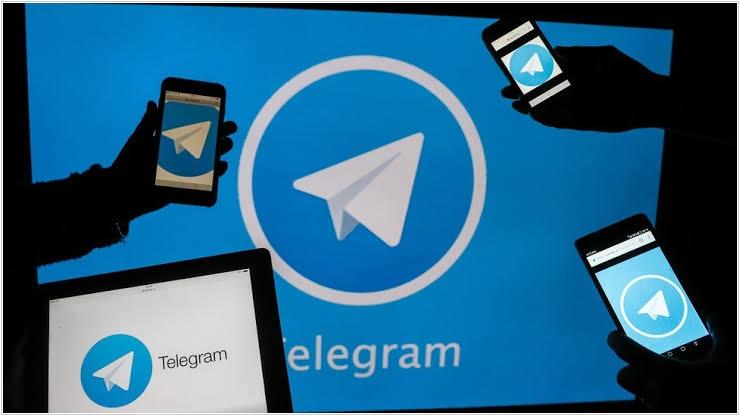
Messenger Wars. The app is good, but this family of hers…
“Privacy and security are in our DNA,” said the founders of WhatsApp, which went crazy before it was bought by Facebook. It soon became clear that Facebook, which cannot live without user data, was also interested in the privacy of WhatsApp users. Users began to scatter and look for alternatives that are innumerable.
For a long time, the discerning have taken note of phrases in WhatsApp's privacy policy: "We use all the information we have to be able to provide, improve, understand, adapt, support and sell our services."
Of course since then WhatApp he is part of the "Facebook family" and receives information from them. “We can use the information we receive from them, and they can use the information we share with them,” we read in the information provided by the app. And while, as WhatsApp assures, "family" does not have access to end-to-end encrypted content - "your WhatsApp messages will not be posted on Facebook for others to view," this does not include metadata. "Facebook may use the information it receives from us to improve the user experience of its services, such as offering product offerings, and showing you related offers and advertisements."
Apple exposes
However, the "privacy policy" is usually not disclosed. Admittedly, few people read them thoroughly. Another thing is if this type of information is disclosed. For about a year, one of the main topics and lines of dispute between the tech giants has been Apple's new policy, which, among other things, limits the ability to track identifiers and match location to rely on advertisers, customers, including Facebook. You must distinguish data inside the application from user metadata, phone number, or device ID. Associating your app data with your device metadata is the tastiest part of the pie. Apple, by changing its policy, has simply begun to inform on the pages of applications about the data that it can collect and whether this data is associated with it or used to track it.
Information about this was also visible on the page of the WhatsApp application, which, according to the assurances already given, "has security in its DNA." It turned out that WhatsApp collects data about contacts on the phone, location information, that is, where the user uses Facebook services, device IDs, IP address location-related if the connection is not through a VPN, as well as usage logs. Everything related to the identity of the user, which is the essence of metadata.
WhatsApp issued a statement in response to information released by Apple. “We need to collect some information to ensure a reliable global connection,” the message says. “As a rule, we minimize the categories of data collected (…) take steps to limit access to this information. For example, while you may grant us access to your contacts so that we can deliver messages you send, we do not share your contact lists with anyone, including Facebook, for their own use."
According to unofficial reports, WhatsApp suffered the most when it compared the data collection label with what it collects. Apple's native messenger called iMessage, a competitive product, although of course much less popular. In short, any additional data that iMessage collects to monitor its platform and its use cannot, in principle, be associated with your personal data. Of course, in the case of WhatsApp, all this data is combined to create an attractive advertising product.
However, for WhatsApp, it has not yet been a knockout. This happened when the “Facebook family” decided at the beginning of January 2021 to change the privacy policy in the messenger, adding, in particular, the requirement for users to accept data sharing with Facebook. Of course, iMessage has not been the main beneficiary of the wave of anger, rebellion and flight from WhatsApp, as the Apple platform has limited reach.
It's good to have alternatives
The hype generated by WhatsApp's new privacy policy has been a strong boost to its main competitors, Signal and Telegram messaging (1). The latter gained 25 million new users in just 72 hours of WhatsApp policy change news. According to analytics firm Sensor Tower, Signal has grown its user base by 4200 percent. After a short tweet by Elon Musk “Use a signal” (2), the site administration failed to send verification codes, so there was interest.
2. Tweet Elon Musk calling for the use of Signal
Experts began comparing apps in terms of the amount of data they collect and privacy protection. To begin with, all of these applications rely on strong end-to-end content encryption. WhatsApp is no worse than the two main competitors.
Telegram remembers the name entered by the user, his contacts, phone number and identification number. This is used to sync your data when you sign in to another device, allowing you to keep the data stored in your account. However, Telegram does not share correlated data with advertisers or any other entities, at least nothing is known about it. Telegram is free. It is working on its own advertising platform and premium features. It is financed mainly by its founder Pavel Durov, who previously created the Russian social platform WKontaktie. There is a partially open source solution using the MTProto encryption protocol. While it doesn't collect as much data as WhatsApp, it also doesn't offer encrypted group conversations like WhatsApp or anything like that.
greater user data privacy and company transparency, such as Signal. Unlike Signal and WhatsApp, Telegram messages are not encrypted by default. This must be enabled in the app settings. The researchers found that while part of Telegram's MTProto encryption scheme was open source, some parts were not, so it's not entirely clear what happens to the content once it's on Telegram's servers.
Telegram has been the victim of several attacks. In March 42, about 2020 million Telegram user IDs and phone numbers were exposed, believed to be the work of Iranian state hackers. This will be the second massive Iran-related hack after 15 million Iranian users were discovered in 2016. Telegram's bug was exploited by Chinese authorities in 2019 during protests in Hong Kong. Lately, its GPS-enabled feature for finding others nearby has created obvious privacy concerns.
Signal is undeniably the master of privacy. This application only saves the phone number that is used for identification, which can be inconvenient for the user if he wants to use different devices. But something for something. Today, everyone knows that convenience and functionality are bought today for your personal data. You must choose. Signal is free, ad-free and funded by the Signal Foundation, a non-profit organization. It is designed as open source software and uses its own "signals protocol" for encryption.
3. WhatsApp's first war with Asian messengers
Main function signal can be sent to individuals or groups, fully encrypted text, video, audio and picture messages, after verifying the phone number and enabling independent verification of the identity of other Signal users. Random bugs have proven that the technology is far from completely bulletproof. However, it has a better reputation than Telegram and possibly a better reputation in general when it comes to privacy. Over the years, Signal's primary privacy concern has not been technology, but a small number of users. Sending an encrypted message, such as an SMS in Signal, to a person who is not using Signal does not protect the privacy of that message in any way.
There is information on the Internet that Signal has received millions of dollars over the years from the Central Intelligence Agency (CIA) agency. An ardent supporter of Signal, supporting its development with its open technology, was the US government organization Fund Broadcast Board of Governors, renamed the US Agency for Global Media.
Telegram, a solution somewhere between WhatsApp and its "family" and the uncompromising Signal, can be used as a personal cloud and offers the ability to send and share files similar to Google Drive, making it an alternative to another product that is greedy for user data from the "family". ", this time "Google family".
Changes to WhatsApp's privacy policy in January helped boost the popularity of Telegram and Signal. It was a time of sharp political clashes in the United States. After the attack on the Capitol, acting in coalition with Democratic-supporting tech giants, Amazon shut down the conservative alternative to Twitter, the Parler app. Many pro-Trump netizens have been looking for communication alternatives and have found them on Telegram and Signal.
WhatsApp's battle with Telegram and Signal is not the first global instant messaging war. In 2013, everyone was excited that, by expanding beyond the national user base, Chinese WeChat i Japanese line they are leaving behind Korean Kakao-Talk in the Asian market and possibly the world, which should have worried WhatsApp.
So everything has already happened. Users should be glad there are alternatives, because even if they don't change their favorite product, competitive pressure is causing Facebook or another mogul to curb its appetite for private data.

